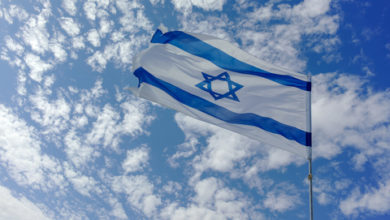The Soul of a Gentile | Basic Tenets of Jewish Philosophy
It is often said that a Gentile has no soul. However, this statement is rooted in a misunderstanding of the sources which discuss the matter.
The most widely publicized source is the Tanya, Chapters 1 and 2: “Every man from Israel has two souls. One soul is related to the mystical shell… and this is the source of all evil traits… In addition, the good traits which are natural for the Children of Israel… come from there… This is not true for the souls of the other nations… which do not have any good at all… And the second soul within Israel is a part of G-d above in an absolutely real way (mamash).”
Some people understand this to mean that the other nations do not have a second soul, a “neshama,” at all. However, I heard directly from Rabbi Yehuda Ashkenazi, who heard it directly from Rabbi Yitzchak Shnierson, the cousin of the Rebbe of Lubavitch, that the above sentence should be read with a comma in the appropriate place, implying a very different meaning: “The second soul, which in Israel is a direct part of G-d above…” Thus, the second soul exists among the Gentiles too, and it is part of G-d, but it is not an “absolutely real” element.
If we do not understand the passage in this way, we might well ask how we can demand that Gentiles behave in a moral way, if they have no Divine foundation in their souls. However, we must understand that every human being has an element of purity in their soul, but in the Gentiles this does not appear in their “animal” soul but rather in their “second” soul. It is then clear why for a Gentile spiritual uplifting requires a very large effort, while a Jew can find a path to moral purity within his first-level human nature.
The essence of the difference between the “precision” of the soul of Israel and the “imprecise” character of the other nations can be seen from what Rav Kook writes – that for the other nations eternity can be acquired by those who desire it by perfecting their souls with deeper understanding and with good deeds. But anyone who does not want to do this can “opt out” and not be involved in the effort. This is not true of a person from Israel, who is forced to establish a relationship to eternity, and who is required to bear the yoke of purging of sin and of suffering until he manages to perfect his soul. (Olat Re’Iyah, volume 2, page 156).
Rav Kook elaborates on this when he explains that a person from Israel must maintain a relationship with the community, while this is not required for other nations (Orot, page 144). This implies that the soul of an individual is what links him to the community. While it is true that the people of the other nations have a community soul (see Orot, page 156), which Daniel calls “the minister of the nation,” the individual does not receive his moral and spiritual nourishment from this, and for this reason he does not have an obligation to the entire community.
We can therefore understand the aspiration which is voiced by the people of Israel twice every day in the “Shema” – that the ministers be removed from their tasks, and that all the creatures in the world will revert to being protected directly by the shadow of the G-d of Israel.
“G-d, who is now our G-d and not that of the other nations [who are under the control of the ministers], will in the future become ‘One G-d.’ As is written, ‘Then I will have the nations revert to a clear language, so that they will all call out in the name of G-d, and serve Him in unison.’ [Tzephania 3:9].” [Rashi].
Source: “THE ROOTS OF FAITH: Basic Tenets of Jewish Philosophy” – a biweekly column in Shabbat B’Shabbato (Zomet Institute). See: http://www.zomet.org.il/eng – Beshalach 5777, issue 1660.




